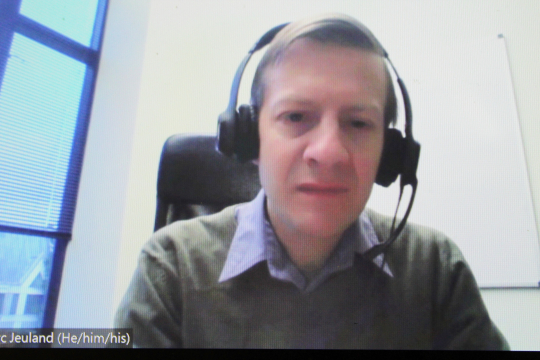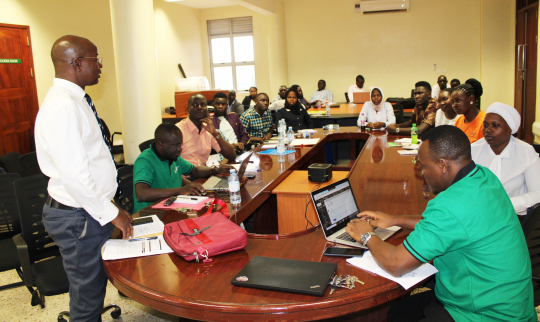EfD researcher Marc Jeuland from Duke University visited EfD Uganda on December 1st. He was invited to share his work in the area of energy economics in a seminar and inspire research fellows and students in economics.
Marc Jeuland presented a paper on Sustainable energy transitions in developing countries: Research knowledge and research gaps and explained why a transition to sustainable energy is important.
“Energy is the golden thread that connects economic growth, social equity, and environmental sustainability. Modern energy can help avoid lung diseases and millions of deaths, children study after dark, farmers to pump water for crops, households to refrigerate food, clinics to keep medicines, and poor people to reduce time-consuming drudgery and entrepreneurs to develop small businesses,” he said.
The seminar held via zoom provided an opportunity for researchers and graduate students to share some of the insights, experiences, and main research.
“The center is focusing on a number of issues that are intended to mitigate climate change, related to energy, said Center Director Edward Bbaale.
“This is very important for Uganda which is still very dependent on unclean energy for many purposes.”
Marc Jeuland started with the historical perspectives on energy transition dominated by the industrial revolution. He gave a broader definition of energy transition as a change in the fundamental state of an energy system and moved into understanding how different countries are doing as far as energy aspects are concerned.
He also highlighted the research gaps, missing knowledge, data gaps, and the gender nexus to keep in mind when developing research proposals.
The EfD Mak Seminar series
The center hosts a series of seminars on different research aspects bringing together research fellows, undergraduate and graduate students with the aim of providing the faculty with new knowledge and helping students pick up new ideas.
The seminars are meant to help students to know what economists do in their profession.
These seminars also make the students aware that they may contribute to solving global challenges.
By Jane Anyango
Communication Officer

